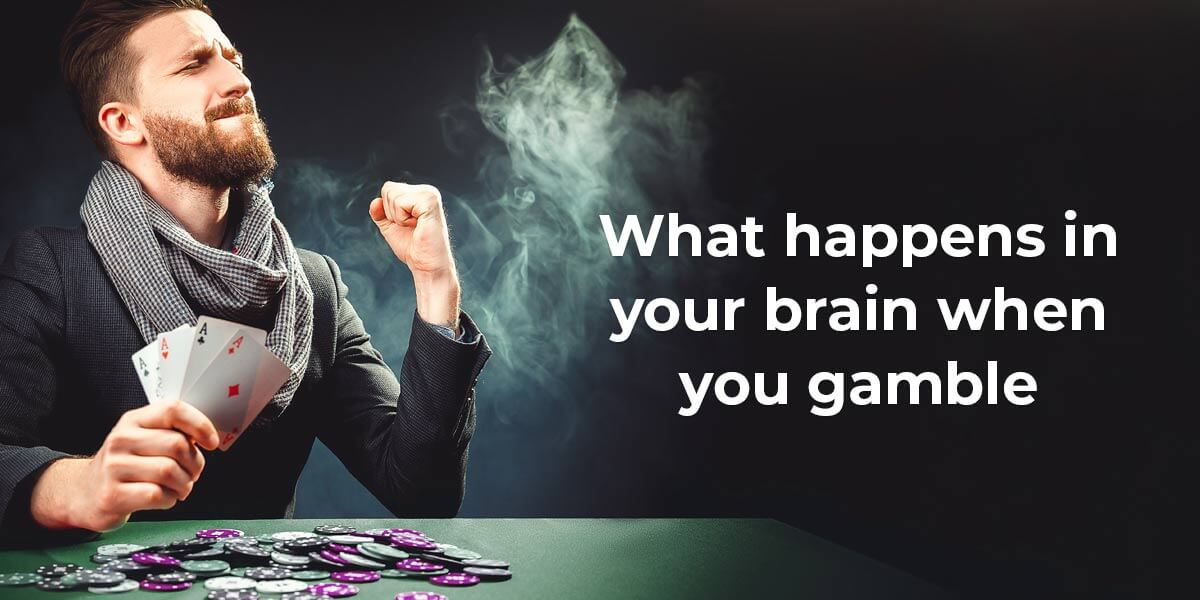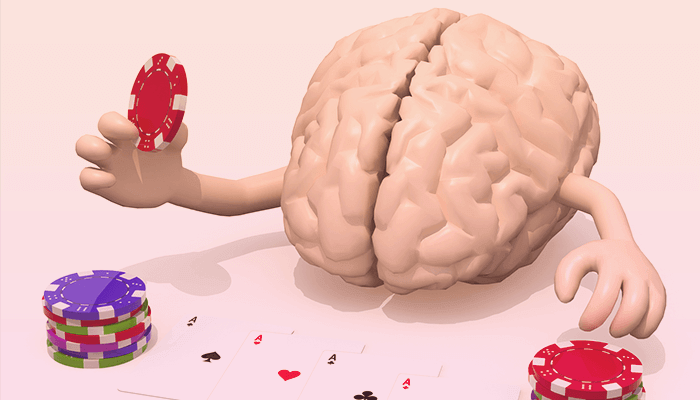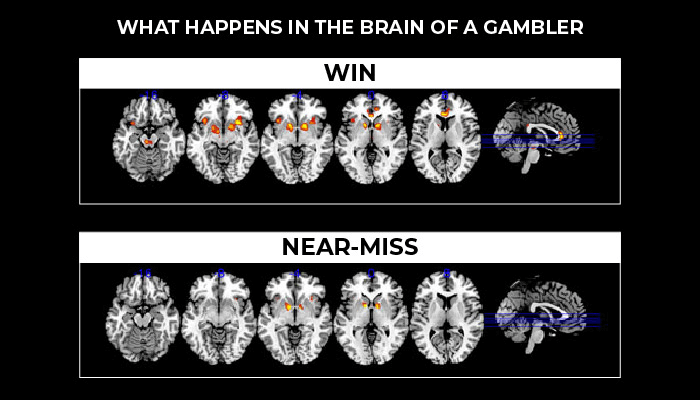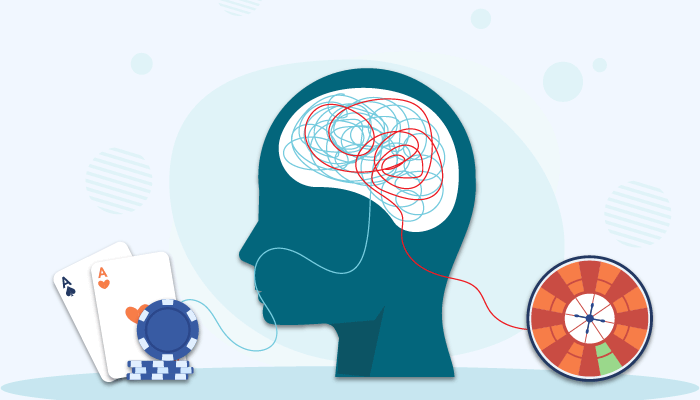What happens in your brain when you gamble

Gambling is becoming more popular each day, with technological advancements making it more accessible and a lot more fun for everyone worldwide. It is a fun activity, but, like any other, it does trigger specific reactions and responses in the human brain. Due to its increasing popularity, neuropsychologists have conducted numerous studies to determine how the brain acts during gambling and what the short and long-term effects are.
What is happening in the brain when gambling?
Dopamine – what is it, and how does it work
How gambling affects your brain
What is happening in the brain when gambling?
After extensive research, brain imaging studies, and neurochemical tests, psychologists have concluded that a gambling session activates the brain’s reward center in the same way substance abuse does. This triggers a release of dopamine in the brain, making the player feel good about the activity they’re engaging in and leaving them wanting more.
Luke Clark, a psychologist at the University of United States Columbia, said that, across many studies, the same two brain areas would come up every time – the prefrontal cortex and the ventral striatum. The blood flow significantly increases in these areas while gambling.

The prefrontal cortex and its reaction to gambling
The prefrontal cortex is the brain area responsible for making decisions, cognitive control, and impulsivity control. During a gambling session, this area of the brain is activated, and it actually helps the player make decisions such as how much they afford to bet or even when to stop.
However, when exposed to excess gambling, the prefrontal cortex’s signals get weaker. This is when the activity becomes less based on a conscious decision, and it starts becoming a habit, allowing the autopilot to take over.
When this happens, the player no longer consciously analyzes every move, forgets to check the time, and feels more absorbed by the activity. This causes them to bet out of their budget or spend hours playing the same game, even if they have been losing for a while.
The prefrontal cortex has a very important role in reward evaluation and delayed discounting, representing one’s preference for a smaller immediate reward instead of a larger delayed one. Studies have shown that this brain region functions differently in individuals that are dealing with problem gambling. They are more impulsive and have a hard time controlling their impulses because of a considerably reduced activation of their prefrontal cortex. They incorrectly process the risk and reward of this activity, as well as the short and long-term consequences.
How the ventral striatum encourages gambling
We’ve talked about the brain area that tries to slow down or even stop gambling, but which often gets overpowered by the ventral striatum. This region is also known as the Reward Center, and it is located deep inside the brain.
The ventral striatum is also implicated in the circuitry for decision-making while also having an essential role in reward-related behaviour. It is also associated with the limbic system, which deals with emotions and memory. This system responds to emotional stimuli and regulated autonomic or endocrine function, and is also involved in reinforcing behaviour.
All of this means that the Reward Center decides which activities you like and which ones you do not. While this may seem like a matter of personality or preferences, it is more a matter of chemicals in your brain.
Therefore, it is expected to see increased activity in the ventral striatum area when gambling. However, when problem gamblers have been placed in a functional magnetic resonance imaging (fMRI) scanner and have been shown gambling videos or had to participate in simulated gambling, scientists saw diminished activation in this brain area compared to what they saw in healthy control participants. Substance addicts had the same results.

This may sound counterintuitive, as everyone expected the reward pathways to fire up like fireworks under the scanner, especially for problem gamblers. Scientists think this did not happen because of what is known as the reward deficiency model. This basically means that people with a certain addiction, including those suffering from gambling addiction, have an underactive brain reward system. This makes them do more of that activity or do it more often in order to have the same result as they had when they started. This is how in the case of drug use, some individuals go from low doses to high or even overdoses and in the case of gambling, how some casual gamblers end up making gambling their number one priority.
Dopamine – what is it and how does it work
Dopamine is a crucial factor in gambling addiction, and its effect appears from the first gambling session. The Reward Center triggers dopamine release in the brain when an individual takes part in a pleasant activity.
There are many neurotransmitters in the brain, and dopamine is one of them. It is a hormone the central nervous system uses to send information from one nerve cell to another. Being the hormone that causes us to feel pleasure, dopamine is in charge of handling learning, pain, sleep, and even mood. Even more, it has a role in physical functions such as heart rate, kidney function, and even lactation.

Significant changes in dopamine levels may sometimes cause mental health issues such as ADHD or schizophrenia.
When gambling, a player’s brain is flooded with dopamine, giving them a pleasant feeling and the desire to engage in this activity again. However, regardless of how great dopamine sounds, it does have a dark side – it is addictive. When exposed to increased levels of dopamine, the brain will crave more after that runs out. The more it gets, the more it wants. This is how both gambling and substance addictions are created.
After repeatedly using a substance or excess gambling, the body starts producing less dopamine naturally, making the individual take more of the substance or gamble more just to attain the same level of dopamine as before.
There is also such thing as a dopamine withdrawal. When people who are addicted stop doing that activity or taking that substance, dopamine levels decrease so much that most of them start dealing with depression.
How gambling affects your brain
There are short-term and long-term effects the brain feels from gambling. A player who is engaging in this activity in their spare time, for fun, and practicing responsible gambling will only experience good feelings triggered by dopamine and adrenaline. They can enjoy the fun and, if they stick to their budget and time their gaming sessions, the activity will not become addictive.
However, gambling does have negative effects on the brains of players who overdo it. While the Reward Center releases dopamine, the player feels good. This, in return, makes the Reward Center decide this activity is pleasant and worth prolonging and repeating. While this happens in the ventral striatum, the prefrontal cortex struggles to assess every decision and possible outcome.
The longer the exposure to gambling is, the less the prefrontal cortex can keep up with it. It will start analyzing less and less, which leads to decisions made on instinct. When the instincts kick in, the activity has become more of a habit than a conscious decision. This means that the players start losing track of time and even money, often betting more than they can afford.

As this happens, adrenaline starts to play a more significant role in this. Bigger bets, losing streaks all pump up the adrenaline level that puts the body in a fight or flight state. This happens as the player expects a win but is worried and agitated about it while chasing losses or making a risky bet. Adrenaline is also a hormone that can become addictive, just like dopamine. The body builds a tolerance to these, and when it does, it needs more to feel the same good feeling.
At some point, when the player decides to stop playing, they will feel the withdrawal symptoms. These may include irritability and depression. With a weakened prefrontal cortex, decision making may be more difficult, and players will notice a higher level of impulsivity along with an inability to control it. Also, a weakened Reward Center will become hard to please, meaning other usually fun activities may seem less pleasant.
Given that all brains react the same to gambling, some may wonder why not every player becomes addicted. This depends on their gambling habit and how they manage it, and some people are even more prone to it than others. People with a lower level of activity in their prefrontal cortex are more impulsive by nature and can develop gambling addiction quicker than regular individuals. However, this activity can remain a fun hobby if properly controlled. Timing gaming sessions, setting a budget and sticking to it can help keep gambling as a leisure activity that does not create any problem in the long term.
Sources of information used for this article:
- Pathological Choice: The Neuroscience of Gambling and Gambling Addiction
- The Science Behind Gambling
- Gambling Addiction and the Brain
- Neuroanatomical foundations of delayed reward discounting decision making
- “Gambling Brain” Studies Make Clear Why It’s Hard to Stop Rolling the Dice
- The relationship between gambling and the brain
- The Role Of Dopamine In Gambling Withdrawal
